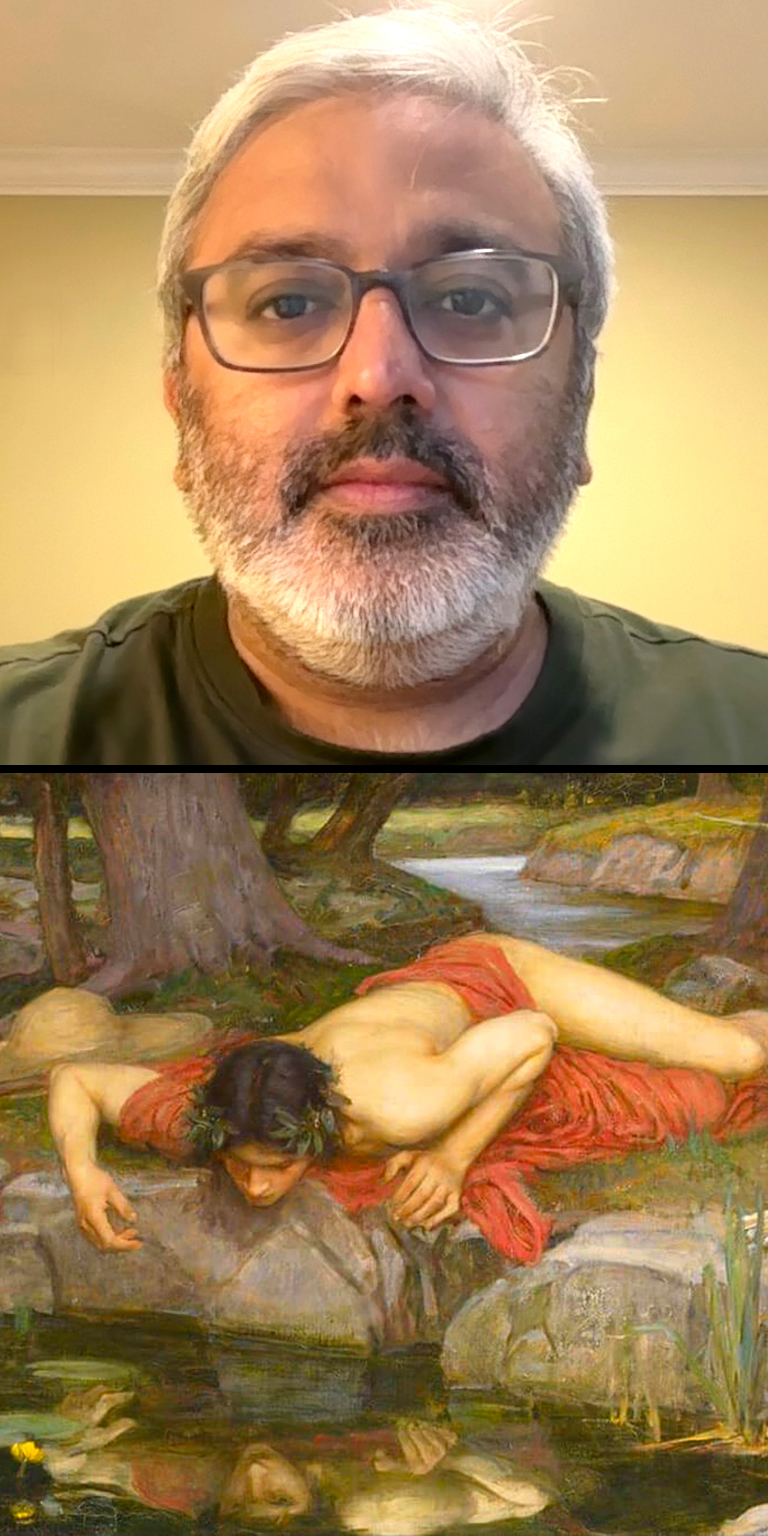On November 3, the Department of Religious Studies welcomed Faraz Sheikh (Ph.D. 2015) for our Distinguished Alumni Lecture. Sheikh isan Associate Professor of Ethics at William & Mary where he teaches courses in Religion and Ethics, Conceptions of the Self: East and West, Ethical and Religious Formation, Religion & Hope and a range of courses in the field of Muslim Ethics.
The lecture juxtaposed two contemporary Muslim visions of reform, one offered by Black American Muslim scholar of Islamic law, Dr. Sherman Jackson and the other by Pakistani Quran scholar and educationist, Javed Ghamdi, now living in self-imposed exile in Dallas county, Texas. Jackson proposes what he calls the Islamic Secular while Ghamdi offers what we may call, with due contextualization, a Secularist Islam, as the most authentic and effective framework for the meaning of Muslim identity, religiosity and moral agency in democratic political contexts, especially the United States. While one can occasionally find resonance between their respective visions on questions of practical ethics, closer analysis reveals their divergent social and political goals, moral anthropologies and conceptions of history, secularism and religion, pit their reformist proposals at odds with each other. The steadily growing popularity, reach and footprint of Ghamdi’s organization, students and teachings in the US and Canada, raise interesting and timely questions about the relations between conceptions of ideal Muslim subjectivity and moral agency on the one hand and citizenship in western liberal democracies on the other.
“Imagining Re-formed Muslim Subjectivities: Listening for Interferences between an Islamic Secular & a Secularist Islam in America”
Monday, November 3, 2025

 The College of Arts
The College of Arts